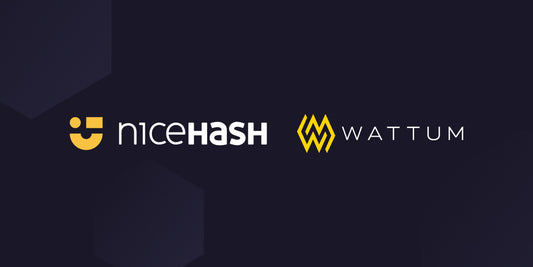Bitcoin ETFs have been an increasingly hot topic in the crypto news as of late, although the overall sentiment of that news has heavily depended on the country in question. For those who don’t know, ETFs (Exchange-Traded Funds) bundle up stocks or commodities and allow investors to buy shares without directly owning the underlying asset. There has been a global increase in the launching of both spot and futures Bitcoin ETFs as demand for exposure to Bitcoin’s profit potential has grown, a trend that will likely continue (worldwide, investment in crypto ETFs and ETPs
The United States, however, has proven much slower to register any similar sort of progress, due in large part to longstanding hesitance from the Securities and Exchange Commission (SEC); indeed, a spot Bitcoin ETF has been on the US crypto industry’s wish list for several years. Though it has approved a total of five futures Bitcoin ETFs thus far (launched in October 2021, the ProShares Bitcoin Strategy ETF
Spot Bitcoin ETFs differ from futures Bitcoin ETFs in that spot Bitcoin ETFs are tied directly to their underlying asset, and thus more closely pegged to the current price of Bitcoin (futures Bitcoin ETFs, rather, are tied to Bitcoin derivatives, namely futures contracts that speculate over the price of Bitcoin at a given later date). Out of claimed apprehension over Bitcoin’s known volatility, in addition to vague concerns about market manipulation, the SEC has so far repeatedly balked at the idea of tethering Bitcoin’s daily price movement to an ETF. Meanwhile, for years now many Bitcoin bulls in the US have waited for the day when SEC approval of a spot Bitcoin ETF would open the doors for a flood of new retail and institutional investment, while adding a huge boost of further legitimacy to Bitcoin.
Tipping the Scale
One of the most active and vocal proponents of a US spot Bitcoin ETF has been Grayscale, a digital currency asset management company that runs the largest publicly-traded Bitcoin fund in the world, the Grayscale Bitcoin Trust (GBTC). For a while now, Grayscale has aimed to convert GBTC into the very first spot Bitcoin ETF in the US (the fund’s assets under management broke $30 billion in late 2021, before dipping back to around $18.8 billion by the time of writing). According to Grayscale, which has an active application under SEC consideration (and several past rejections under its belt), “the SEC is discriminating against issuers by approving Bitcoin futures ETFs and denying Bitcoin spot ETFs.” Grayscale has further called the SEC’s policy disparities between spot and futures ETFs “distinctions without a difference,” and even alluded to suing the SEC if the agency doesn’t rule in its favor.
As part of a larger campaign to sway both regulators and broader public opinion, Grayscale met privately with the SEC earlier this month to further make its case. Grayscale also recently launched an advertising blitz aimed at spreading public awareness on the topic, and has even organized more than 3,000 letters addressed to the SEC in support of a GBTC spot conversion. In essence, Grayscale claims that spot Bitcoin ETFs are no riskier than futures Bitcoin ETFs since they’re both influenced by the same inputs, and that a conversion for its fund would actually unlock around $8 billion in value for its investors more or less instantly (GBTC has traded at an average of 25% below the price of Bitcoin for well over a year, widening to more than 30% just this past month, and would start tracking Bitcoin more closely upon conversion).
Grayscale, which holds around 3.4% of all currently mined Bitcoin across 865,000+ US accounts, first applied for a spot ETF more than five years ago, in 2016. However, a wave of new regulation precedent has arisen surrounding recent futures Bitcoin ETF applications from Teucrium and Valkyrie that were filed under alternate US Securities Acts and then approved by the SEC. Both of these applications opted to apply under the 1933 and 1934 Securities Acts instead of the Investment Company Act of 1940 that has been used in past rejections, upon which Grayscale has concluded that “by approving Teucrium,
₿ Marks the Spot
Although Bitcoin ETFs, whether spot or futures, offer no viable substitute for the many benefits provided by Bitcoin mining, the increased financialization of Bitcoin will nonetheless play an important role in its adoption curve in the years ahead. The ability to invest in Bitcoin through a NYSE–traded spot ETF would still mark a major step forward in Bitcoin becoming more accessible, familiar, and legitimate to investors in the US and across the world, and would almost certainly open the floodgates for new investment and positive price action (it’s worth noting that the size of the spot Bitcoin ETF market has grown far quicker and larger than that of the futures Bitcoin ETF market in certain countries like Canada that sanction both, which does prove telling about overall investor preferences).
A spot Bitcoin ETF in the US would certainly streamline new investment opportunities for retail and institutional investors, which, over the long term, would also likely boost existing investors and miners. For the untold retail masses still hesitant to acquire Bitcoin via mining, wallets, or exchanges, a spot Bitcoin ETF could offer a convenient way to get involved, and spot Bitcoin ETFs would offer multiple advantages over futures Bitcoin ETFs without necessarily incurring more risk. As for institutional investors bound by investment restrictions, SEC approval would provide a necessary green light for adjustments in investment strategies and policies (and a recent Nasdaq survey of US financial advisors found that 72% would be more likely to encourage crypto investment, given a spot crypto ETF option).
Stock-in-Trade
An approval of a spot Bitcoin ETF in the US would mark yet another crucial milestone along Bitcoin’s long journey to mass adoption, but there will be many more to come, regardless of the SEC’s impending decisions. Although a spot Bitcoin ETF would definitely present new investment opportunities in the US, the best and most cost-effective way to accumulate Bitcoin moving forward will continue to be mining. In fact, the same GBTC price discount that many institutional investors have been capitalizing on lately even offers a parallel of sorts to mining, since buying equipment and mining essentially means purchasing Bitcoin in small increments at the price of the miner, which in many cases can amount to a far greater discount than GBTC.
Wattum welcomes any eventual approval of a spot Bitcoin ETF in the US as another positive milestone for the Bitcoin ecosystem as a whole. When and if SEC approval does happen, the price of Bitcoin will inevitably increase, thus boosting investors but raising the barrier of entry into mining. As such, right now makes for the perfect time to launch or grow your mining operations, before the price of Bitcoin fully recovers. Get in touch with a Wattum sales representative to learn more about your mining options today.



